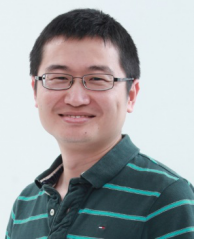 Biograph: Dr. Jun Zhang received the Ph.D. degree in Electrical and Computer Engineering from the University of Texas at Austin. He is currently an Assistant Professor in the Department of Electronic and Information Engineering at the Hong Kong Polytechnic University (PolyU). His research interests include wireless communications and networking, mobile edge computing and edge learning, distributed learning and optimization, and big data analytics. He is an Editor of IEEE Transactions on Wireless Communications, IEEE Transactions on Communications, and Journal of Communications and Information Networks.
Biograph: Dr. Jun Zhang received the Ph.D. degree in Electrical and Computer Engineering from the University of Texas at Austin. He is currently an Assistant Professor in the Department of Electronic and Information Engineering at the Hong Kong Polytechnic University (PolyU). His research interests include wireless communications and networking, mobile edge computing and edge learning, distributed learning and optimization, and big data analytics. He is an Editor of IEEE Transactions on Wireless Communications, IEEE Transactions on Communications, and Journal of Communications and Information Networks.
Dr. Zhang co-authored the books Fundamentals of LTE (Prentice-Hall, 2010), and Stochastic Geometry Analysis of Multi-Antenna Wireless Networks (Springer, 2019). He is a co-recipient of the 2019 IEEE Communications Society & Information Theory Society Joint Paper Award, the 2016 Marconi Prize Paper Award in Wireless Communications (the best paper award of IEEE Transactions on Wireless Communications), and the 2014 Best Paper Award for the EURASIP Journal on Advances in Signal Processing. Two papers he co-authored received the Young Author Best Paper Award of the IEEE Signal Processing Society in 2016 and 2018, respectively. He also received the 2016 IEEE ComSoc Asia-Pacific Best Young Researcher Award.
Title:Deep Learning for Wireless Networks: Which Model to Use?
Abstract: Is deep learning useful for wireless communications and networking? When should we use it, and which model to use? These are typical questions a wireless communication theorist may be wondering these days. This talk is going to partially address these common concerns. Particularly, it will focus on resource management in wireless networks, and introduce how deep learning can be applied for effective performance optimization.